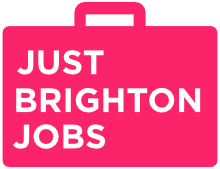It’s not just for high powered corporate bosses and budding entrepreneurs.
Networking has been around since businesses began and it’s a proven to be a powerful tool over the years. It can also help if you are looking to find a new job or a change career.
The trouble is many job seekers find networking a little daunting and shy away from this kind of activity without really understanding what it is. The good news is that it doesn’t have to be so challenging.
In fact, it can be an enjoyable and productive way to build relationships and improve your career prospects.
5 Benefits of Networking
- Firstly, it gets you talking face to face with those who might be able to offer you a job and keeps you up to date with who is taking on staff in Brighton and Hove.
- It makes you feel a part of something rather than disconnected from the world of work. When you’re applying for jobs, it can feel a little isolating and impersonal. Networking gets you out and about.
- It can build your confidence and help you understand the sector you are working in, or hoping to work in, more deeply.
- You get access to help and advice from a wide variety of people, some leaders and managers as well as other individuals looking for that dream job.
- Finally, it can be done both online and in the real world. There are more opportunities than ever to reach out to a whole range of people and make important connections.
How to Join a Networking Group
There are a range of different networking groups that you might be able to join. One of the biggest online, of course, is LinkedIn.
A lot will depend on what you want to achieve, of course, but there are plenty of different groups here that you can interact with and gain valuable insights and information to help in your job search.
There’s nothing better, however, than meeting people face to face and networking is a great way to focus on what you want to achieve.
Most towns and cities have their own business networks which you can discover online. It’s worth doing a search on Google to see when they have their next meeting and whether they fit your requirements.
Networking is about building relationships but you don’t always need a formal structure to take advantage of it.
Your network is anyone who you can contact for help and advice. It might be an old school friend or people that you went to college or university with. It could be work colleagues or friends from a local group that you attend regularly.
Most of us know a lot more people than we think – you might want to start with compiling a list of those who can help in your job search. They could range from friends and family to local businesses and organisations.
The key to successful networking is understanding that it is a two way process. It’s a conversation rather than a fixed Brighton and Hove job board.
You need to give and take, as in any relationship, of course. Someone may not have any hot tips or might not have heard of a new job coming up right now but they may do in the future.
If you’re in their network, they’re more likely to give you the heads up if you’ve built something of a relationship with them.

